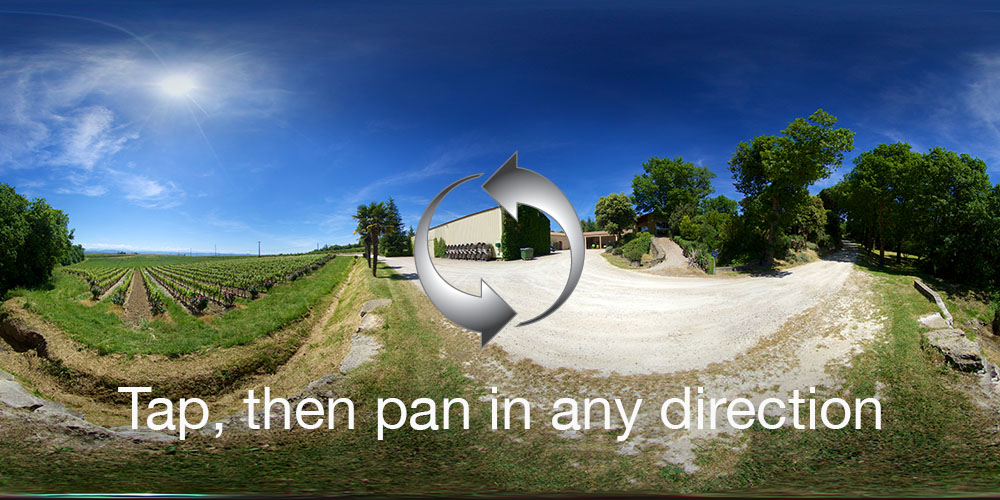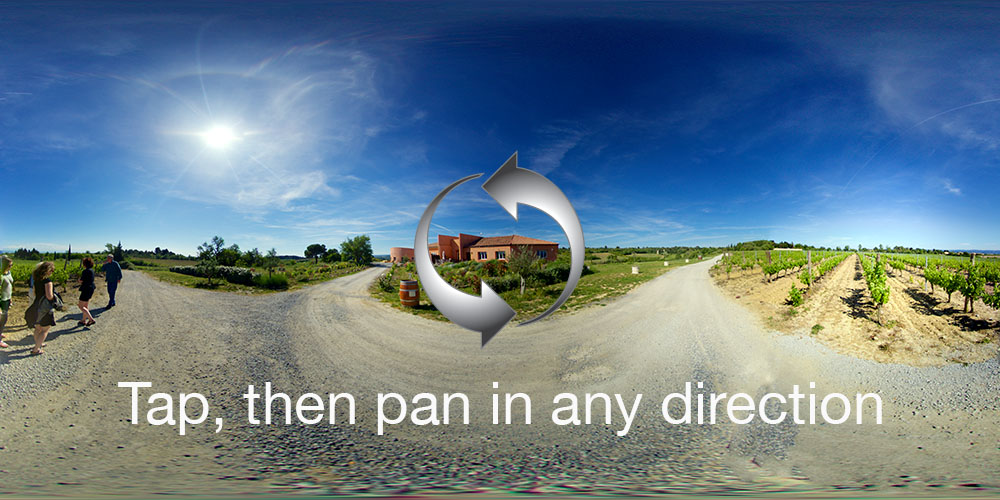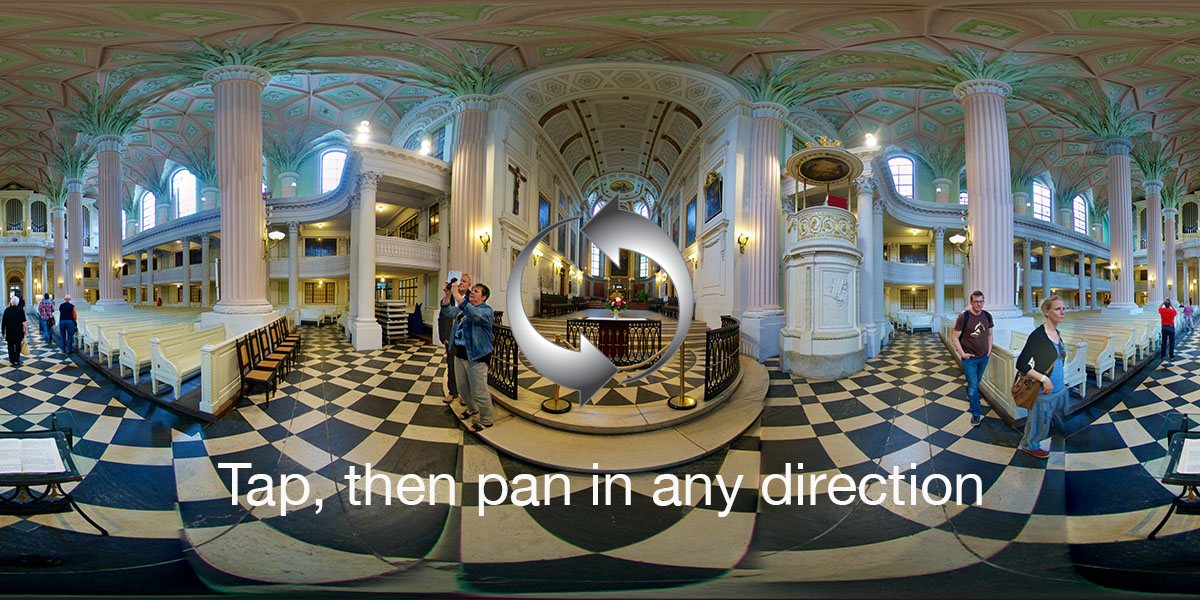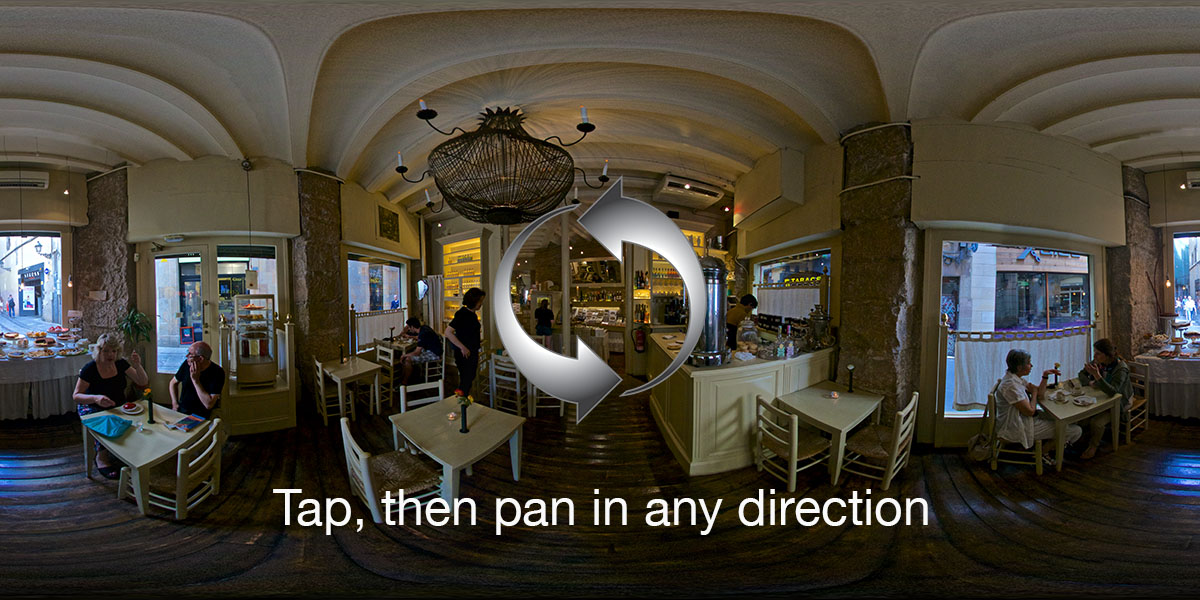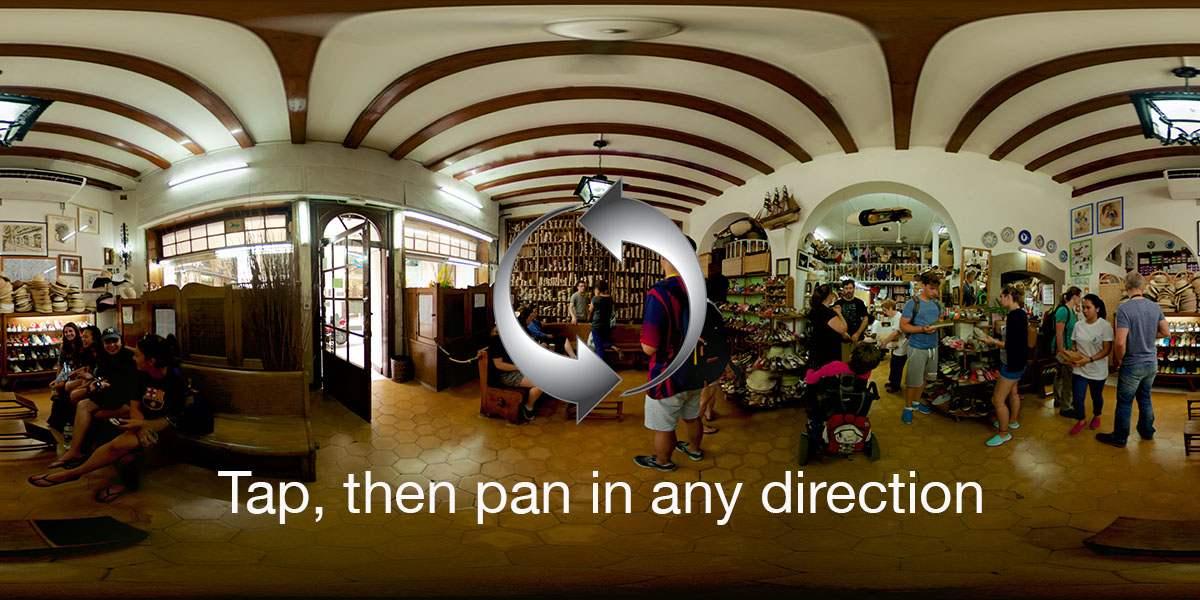An industry that used to compete with Hollywood is starting to wonder if it has become a colonial outpost of Silicon Valley. The prime spots on the Cannes beachfront this year belonged to Facebook and Google. A recent report from Accenture said that “marketing is so inextricably linked to technology that, by 2017, chief marketing officers are projected to spend more on information technology and analytics than chief information officers.”
Ten years ago, ad agencies thought they had hit on a new formula for success: move on from the blunt instruments of conventional advertising and embrace the laser-sharp selling tools of digital media. The industry’s about-turn was made partly out of an instinct for self-preservation, but also from a yearning to be aligned with the zeitgeist, in a world where glamour has migrated from Madison Avenue to Palo Alto. To some, however, it feels as if they have given up the ghost.
Goodby’s cri de coeur echoed the anxieties of others. In April this year, Giles Hedger, chief of strategy for Leo Burnett Worldwide, wrote a polemic for the industry’s UK trade journal, Campaign, bemoaning the domination of advertising by technology: “The belief that [the] marketing contract can be stripped of all its joyful subjectivity until all that remains between consumer and brand is transaction?.?.?.?is the fallacy of our time.” Hedger described his views as “heresy” but said he believed “the voices of sanity are growing around us”.
So How did a Company selling Rubber Tires become the World’s Authority on Restaurants?
Thanks, and “may I take a photo of that label”?
My mind wondered a bit while listening to Saturday evening’s message on Christ the King Sunday [1]
I began to consider all that I have been given. Family, friends, colleagues and endless blessings. I quickly lost count and returned to the message at hand.
One blessing, one recent journey lies near the top of my list.
Our family often jokes about basketball camp T-shirts given to our daughters years ago. A jovial referee suggested a camp when I coached their Y basketball team. That short lived expedition did indeed result in camp attendance. The t-shirt shouted, in a large font:
“You miss 100% of the shots you don’t take.”
And, so it was in the Spring of 2015 that we planned a journey through Southwest France, namely the Languedoc-Roussillon [2] region with a few days in Carcassonne [3]. The paradox of choice [4] quickly overtook “what to do” planning.
I stepped back and wondered who I might ask for suggestions. Credit must be given to my parents, grandparents, numerous mentors, several teachers and professors who reminded me to “Ask and it will be given to you; seek and you will find; knock and the door will be opened to you.” [5]
I have long enjoyed reading the Financial Times’ weekend “Life and Arts” articles. Jancis Robinson’s wine compositions tingle the mind with tales of history, culture, marketing, food, travel, brands, bureaucracy and entrepreneurs.
Jancis [jancisrobinson.com] it was.
I tapped an email seeking suggestions near Carcassonne. A reply swiftly arrived.
We chose two of her four recommendations.
A gem of a day.
First up, Rives Blanques [6].
A gracious and elegant host, Caryl Panman welcomed us as friends. She immersed us in the wine, “terrior” [7] and recalled a rather frigid March Madison visit that left her precious tasting bottles frozen in a UPS truck.
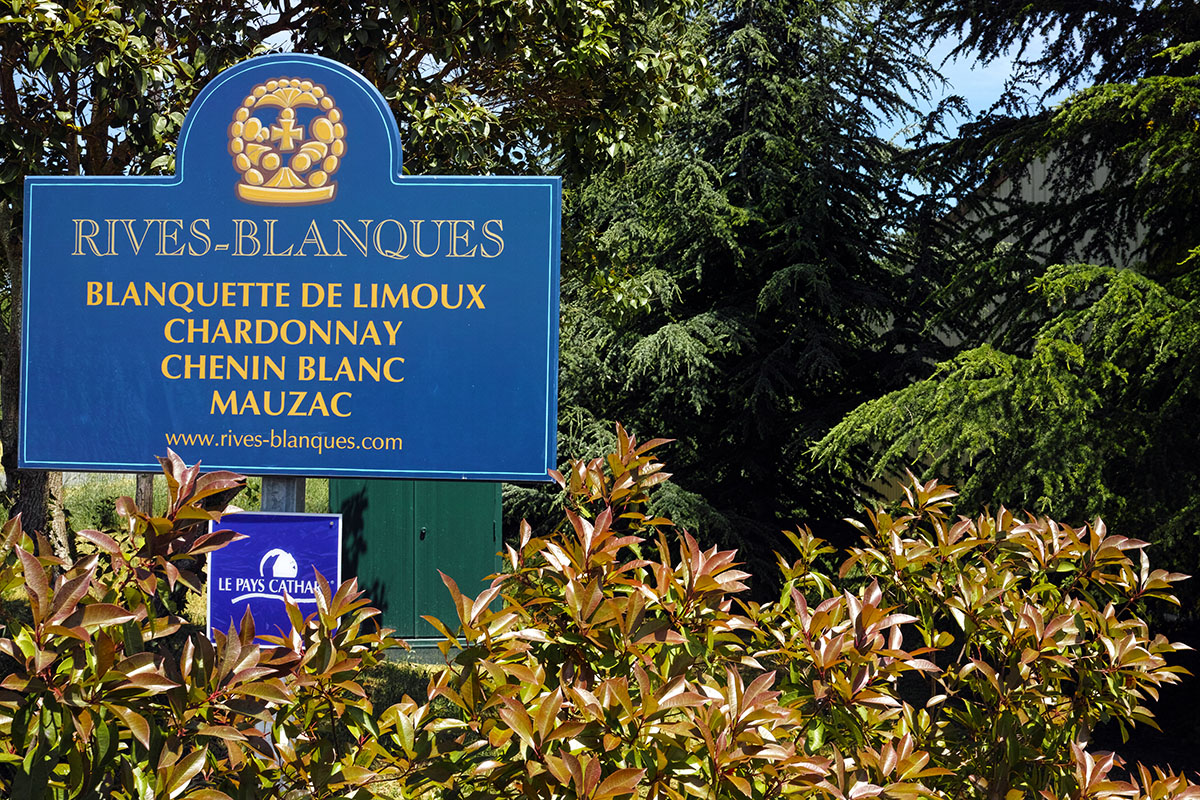
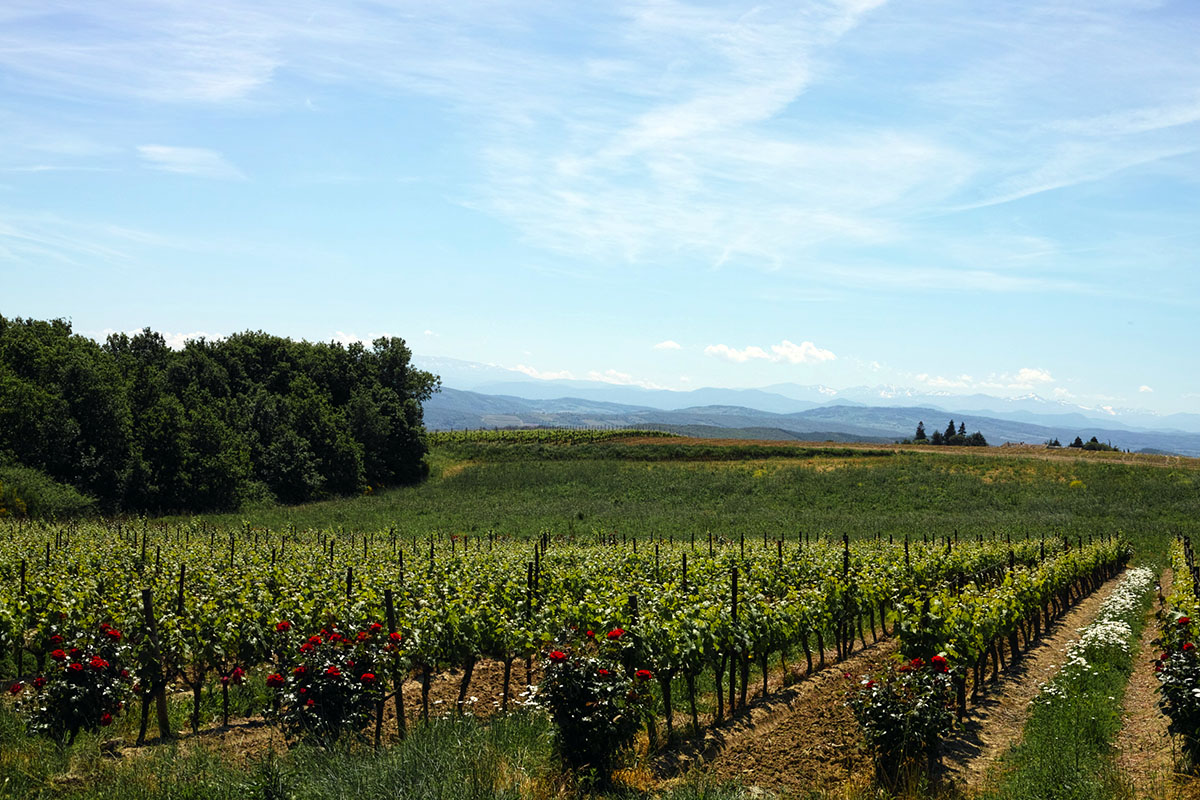
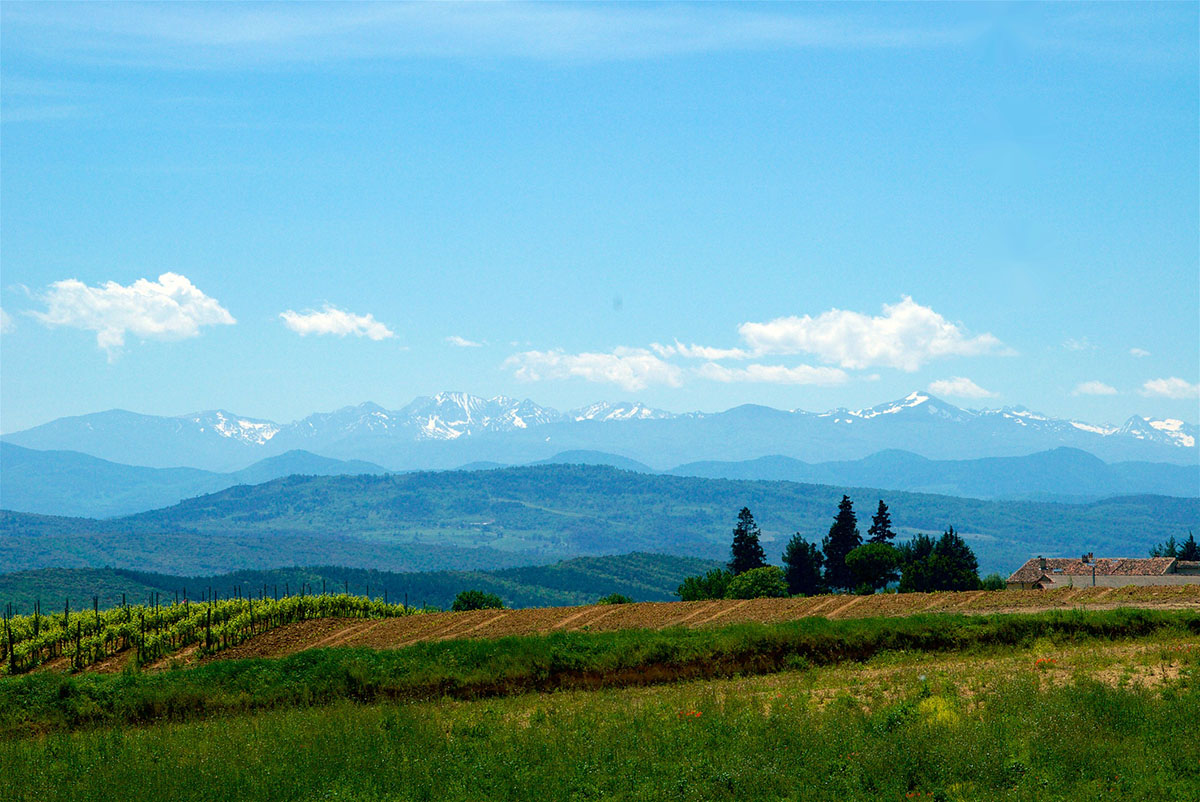
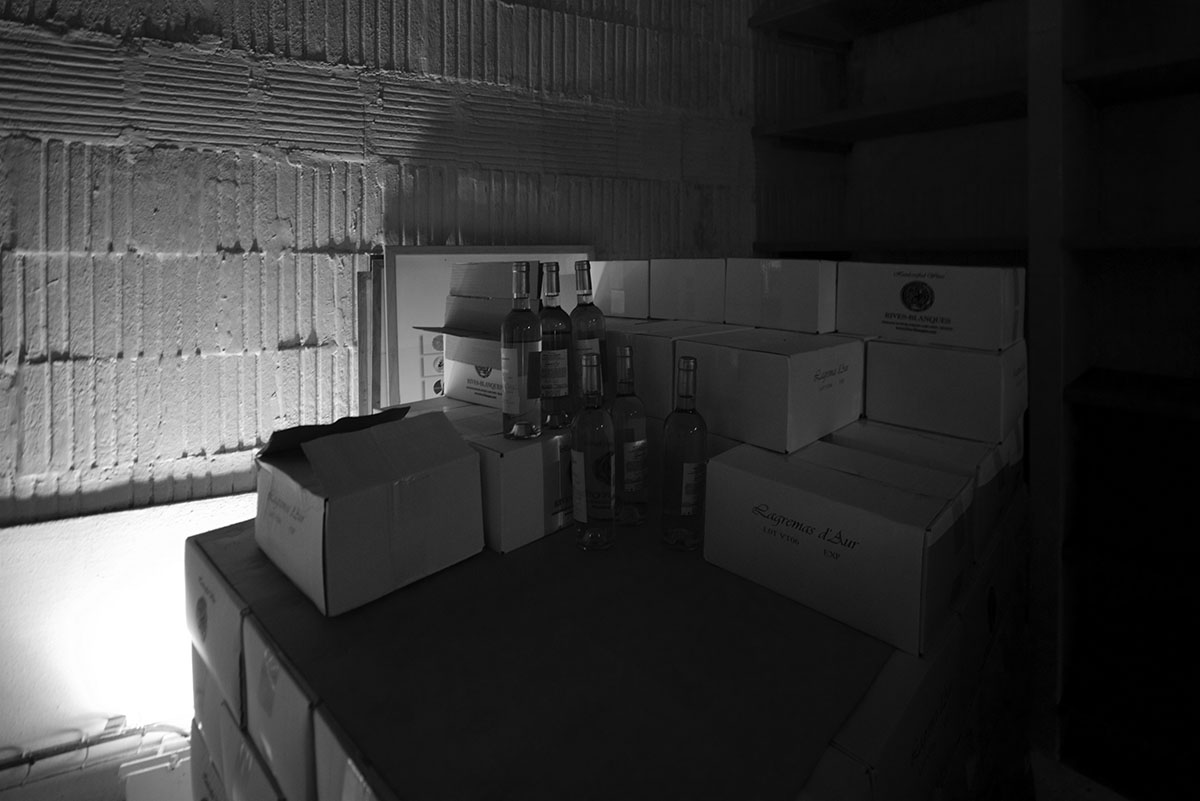
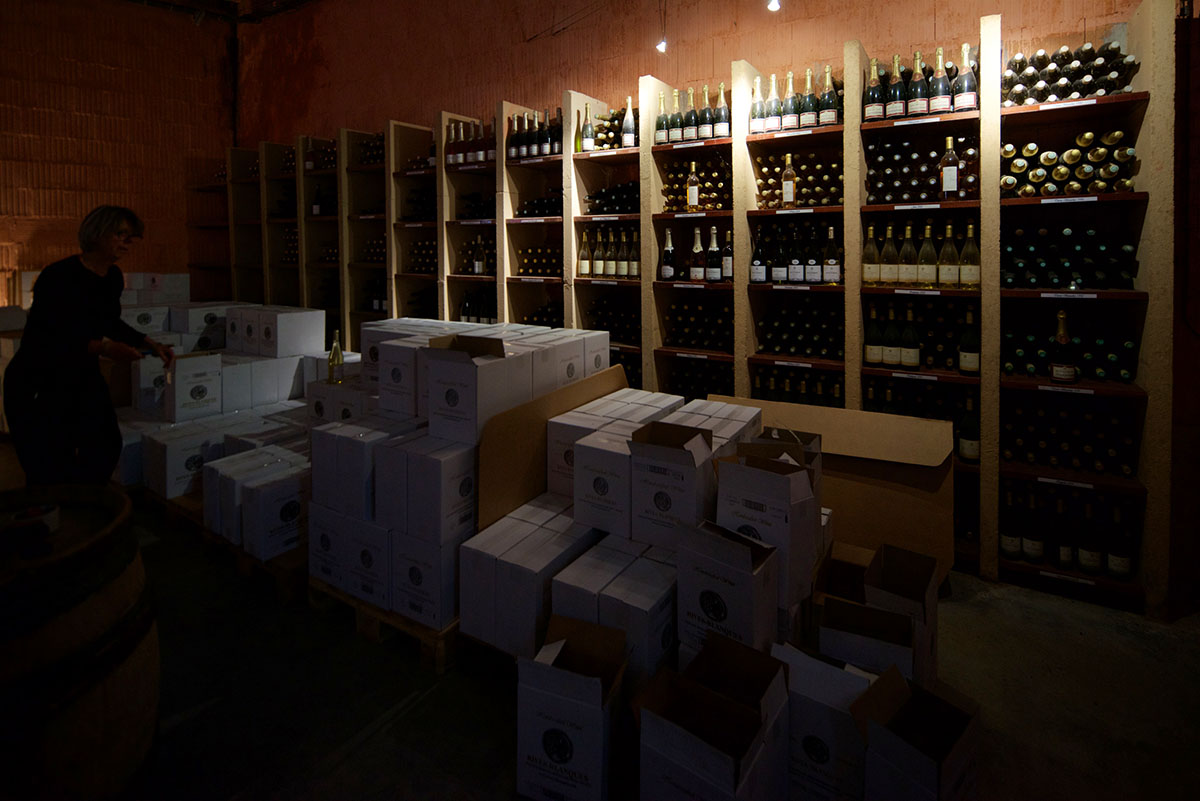
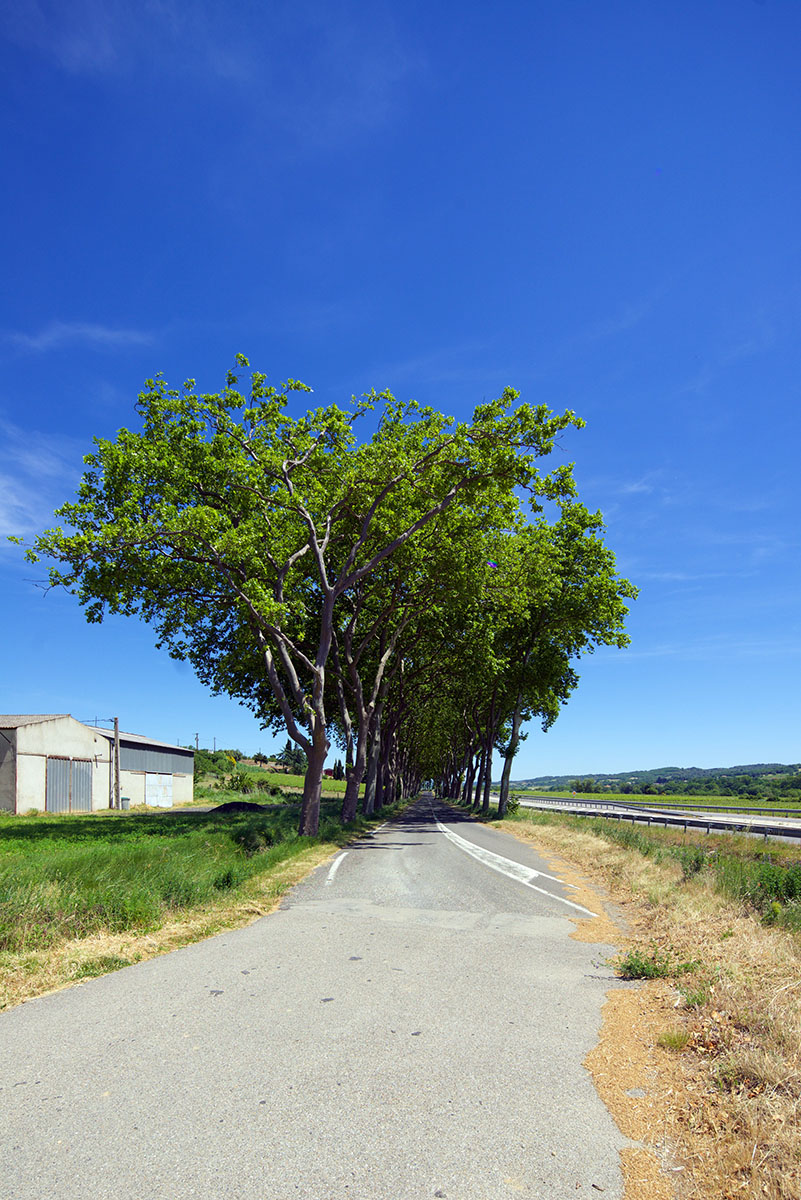
We departed Rives Blanques with less space in our rental car.
Could the next stop – O’Vineyards [7] – begin to approach our time with Caryl and Jan?
Joe and Liz – “Les Américains” – showed us no small amount of hospitality. It was a joyous visit.
Joe regaled us with tales of an American builder contemplating, then interloping into the French wine business while Liz elegantly addressed our appetites. More and more treats appeared while we sampled the fruits and explanations of their labor.
I smile every time I recall our afternoon with Liz and Joe. A treat!


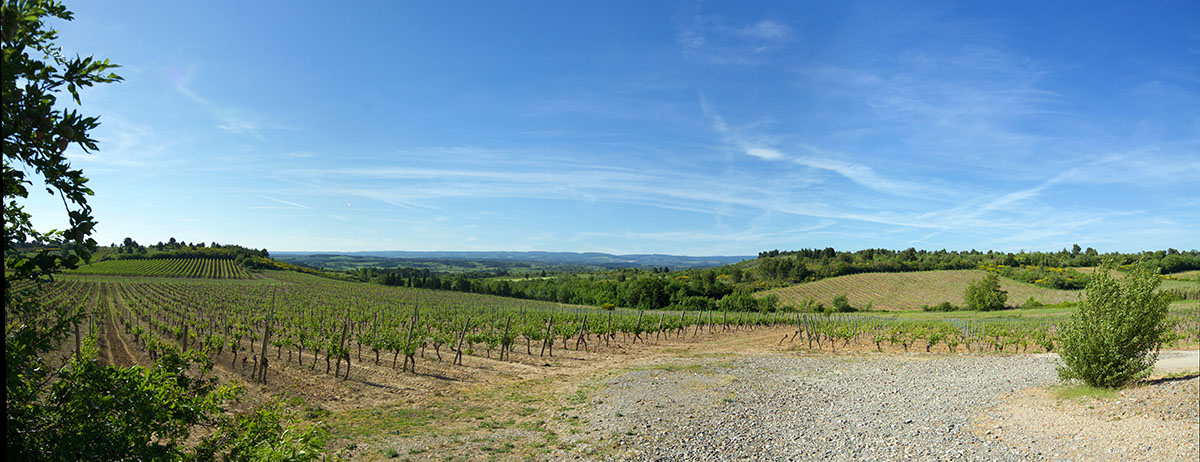
Our rental car now had space just for the passengers.
Approaching Thanksgiving, 2015 and thinking back to that first Thanksgiving; we, too have much to be thankful for. Our cup overflows.
Happy Thanksgiving!
P.S. Before a recent trout dinner, several friends inquired after the wine. One snapped a photo of the label on her iPhone.
It was La Trilogie. [9] Credit must be given to Baptiste Ross Bonneau, The Sommelier [10] who whispered and winked: “Do not depart without several bottles”.
[1] Feast of Christ the King – Wikipedia.
[2] Languedoc-Roussillon – wikipedia
[4] Paradox of Choice – Wikipedia.
[5] Matthew 7:7.
[6] Rives Blanques.
[7] Terrior – Wikipedia.
[8] ovineyards.com.
[9] La Trilogie.
[10] The Sommelier.
Time

Certain voices take up residence in my brain. Lykke Li is one. Tracey Thorn another. And, Karla Bonoff.
Listening to KCRW’s stream recently, a familiar voice wafted through my office. Again, and again. That voice. Who?
Ah, KCRW’s playlist, that’ll do it. School of Seven Bells. 2010 The Majestic Theater. The photo above.
“Open your eyes…” [1]
A beautiful voice.
I wondered what had become of them. Their tale was more than I expected. Benjamin Curtis [2], holding a beer in the photo, passed away in late 2013, age 35.
Could it really have been five years?
I found this voice to be a poignant reminder of other friends suffering with health issues. Our “time of grace” on earth passes quickly.
[1] Open Your Eyes Track.
St. Nicholas Church, Leipzig, Germany Panorama
Barcelona Breakfast & Shoe Shopping Panoramas
Facebook and the Media Have an Increasingly Landlord-Tenant Style Relationship
Some publishers have seen traffic from Facebook plummet by 40%, which reinforces the risks of handing control over your audience to the social network.
A growing number of online publishers including giants like BuzzFeed have come to rely on Facebook for a significant part of their traffic—in some cases as much as 60% of it. Mostly, it’s a win-win relationship with Facebook FB providing reach and a share of advertising revenue in exchange for a supply of engaging material. But every now and then, we get a glimpse behind the curtain at just how much power that relationship gives Facebook, and the consequences if it changes its mind.
“To watch the Roadshow video, please visit this page in a desktop browser”
Square’s roadshow video, as seen on my iPad Air 2……
Rather ironic for Square….. A company that features modern devices on their home page.
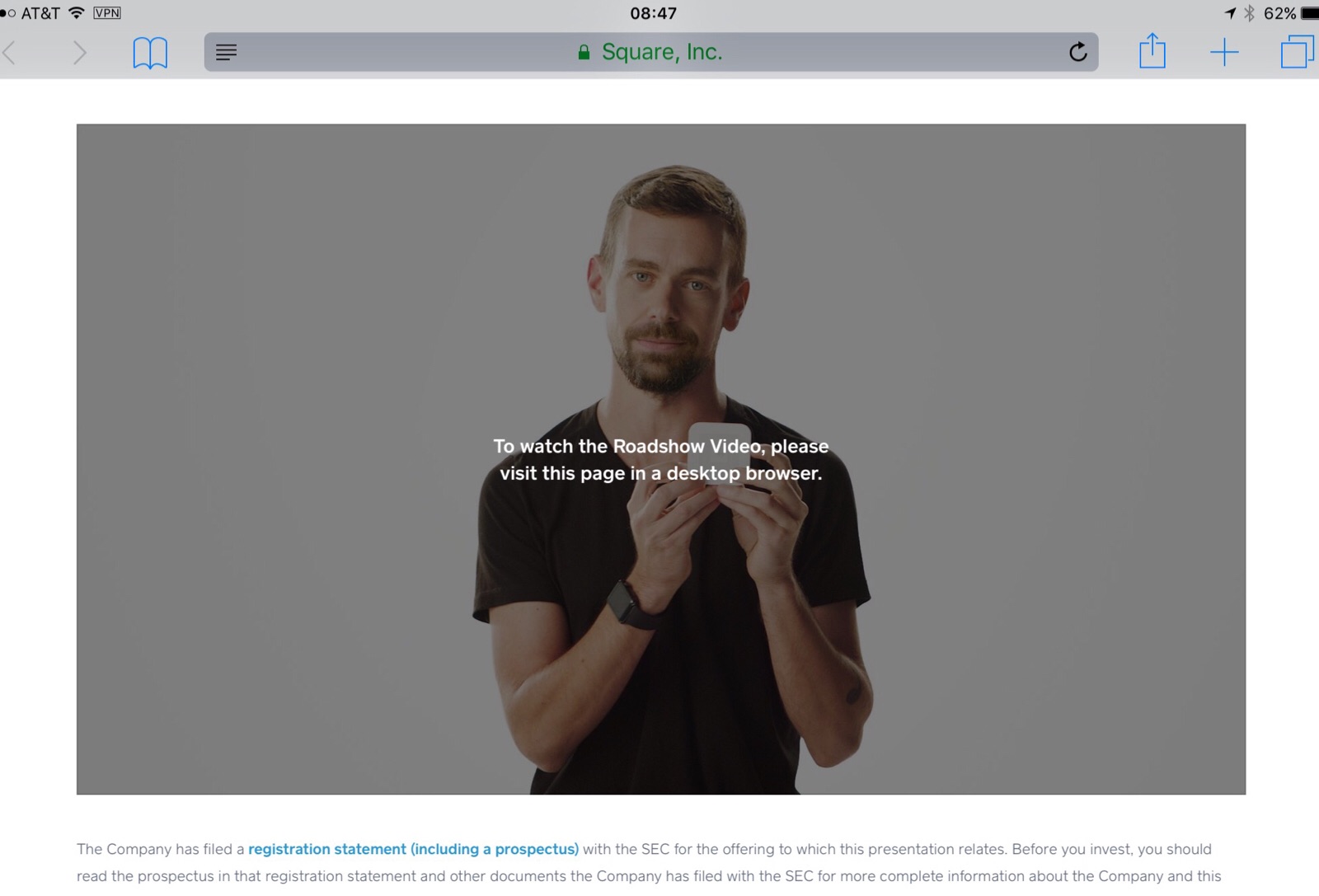
The Post Office
I appreciate the Post Office.
Beyond delivering Christmas Cards, bills, junk mail and the occasional package, I find their personnel to be cheerful and helpful. I also use the post office for the occasional shipment, perhaps a lens sold on ebay.
And, so it was recently, that I shipped a used lens to a buyer in a major city. The buyer messaged me, requested and paid for overnight shipping.
Regrettably, the small box was not delivered the next day, nor, the next. Rather, it arrived three days after shipment, despite paying for overnight service.
“You can probably get a shipping refund”, so said a post receipt buyer’s message. Indeed. I returned to the post office’s website and found that while they would refund my shipping fees, collecting same required a visit to a nearby post office.
And, so it was, on a recent Wednesday that I journeyed to the nearest post office over lunch, expecting long lines and wasted time.
This time, however, there were three attendants and just one customer.
I was summoned to one of the attendants and sought my refund – receipt and tracking number in hand. “Oh, I have to have my manager approve that”. The Post Office is not in a great position to give money back. Wait, let’s see what happened here. Your box sat in Milwaukee for a day. They did not do their job. This should come out of their salary. People need to do their jobs. There’s no excuse for this”.
During this soliloquy, another customer appeared, this time a retiree seeking a form H-2412Mxd (I don’t recall the name), “the one that turns off junk mail”. “I am tired of receive all of this junk mail”.
My attendant responded: “that junk mail keeps your rates low. I don’t support turning it off”. Another attendant knew the form of which he spoke. Evidently rarely used, it required a photo copy and several signatures. He repeated, “I don’t support that. We need all the money we can get”.
Meanwhile, the manager appeared and applied the required signatures to the overnight delivery failed refund form.
Unfortunately, my attendant’s computer completely froze during turn off the junk mail fracas. I was asked to wait for another attendant amidst a now extensive line of customers awaiting service.
The computer continued in its frozen state while another postal service colleague offered to help. With overnight failure refund form signatures in hand, he began entering lots of data into his still working pc computer.
“Does anyone have $45 cash, he asked?”
Turning to me, “We don’t have much cash, so I will have to give you a Postal Service Money Order”. “Take it to a bank and they will accept it, just like cash.
Some might make you deposit it”.
I like the post office, but wonder what will become of it in 10 years time.
Lunch with the FT: Bill Burns
After thousands of American diplomatic cables were leaked to the international press via WikiLeaks in 2010, Burns found himself an unexpected beneficiary. “A Caucasus Wedding”, a telegram he sent to the US state department in 2006 while he was ambassador to Russia, recounting a raucous three-day Dagestani wedding attended by Chechnya’s president Ramzan Kadyrov, was described as a minor classic of comic writing, its tone very much not what one might expect of a diplomatic cable.
“Cooks seemed to keep whole sheep and whole cows boiling in a cauldron somewhere, day and night, dumping disjointed fragments of the carcass on the tables, whenever someone entered the room,” Burns noted. “The alcohol consumption before, during and after this Muslim wedding was stupendous … There was also entertainment, although Gadzi’s main act, a Syrian-born singer named Avraam Russo, could not make it because he was shot a few days before the wedding.”
